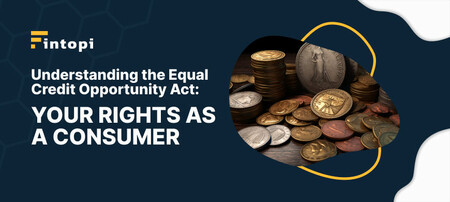Understanding the Equal Credit Opportunity Act: Your Rights as a Consumer
Introduction
The world of finance can be a complex and intimidating place, especially when it comes to understanding the rights and protections afforded to consumers. One such protection is the Equal Credit Opportunity Act (ECOA), which aims to ensure that all individuals have an equal opportunity to obtain credit without facing discrimination. In this comprehensive guide, we will explore the ins and outs of ECOA, its implications for collection processes, and how you can protect yourself from unfair practices.
Discover the Equal Credit Opportunity Act: Consumer Rights Explained
The Equal Credit Opportunity Act (ECOA) is legislation passed in 1974 that prohibits creditors from discriminating against an applicant due reasons related to race, color, religion, national origin, sex, marital status, age or participation in public assistance programs. Criteria that creditors can use in their decisions are financially based like your income debt recurring expenses and credit history.
Unraveling the Collection Process under ECOA: Know Your Rights!
When it comes to collections – whether by creditors themselves or third-party agencies – there are specific rules laid out by ECOA that must be followed:
– Collectors cannot discriminate against any debtor based on protected characteristics.
– They must provide written notice within 30 days if they reject a completed application.
– If a collector violates these regulations or engages in discriminatory behavior during debt recovery processes they may face legal consequences.
A Comprehensive Guide to Understanding ECOA and Consumer Protection
In addition to prohibiting discrimination during lending decisions ECOA also provides several other consumer protections including:
– Requiring lenders give potential borrowers written notice their completed application was rejected accepted within 30 days receiving it
– Ensuring applicants have right request reason denial writing
– Allowing consumers dispute errors information used make decision deny them credit
– Mandating financial institutions maintain records applications for least 25 months
Navigating through Fintopi’s Equal Credit Opportunity Act (ECOA) Insights
Fintopi is a valuable resource for understanding ECOA and its implications on the collection process. By staying informed about key aspects of this legislation, you can better protect yourself against discriminatory actions during debt recovery processes.
Equality Matters: Learn how you can protect yourself against discriminatory actions during debt recovery processes!
To ensure that your rights are protected under ECOA, it’s essential to:
– Be aware of your rights and protections afforded by the act
– Keep detailed records of all interactions with creditors or collectors
– Report any suspected violations to appropriate authorities such as Consumer Financial Protection Bureau (CFPB) Department Justice (DOJ)
Know What You’re Entitled To Under Federal Law When It Comes Down to Debt Recovery Practices by creditors or collectors alike!
In addition to ECOA there are other federal laws in place help protect consumers from unfair collection practices including Fair Debt Collection Practices Act (FDCPA). This law prohibits abusive deceptive misleading tactics used collect debts ensures that individuals treated fairly throughout process.
Conclusion
Understanding the Equal Credit Opportunity Act and its implications for collections is crucial in protecting yourself from unfair lending practices and discrimination based on race, color, religion, national origin, sex marital status age participation public assistance programs financial factors like income debt recurring expenses credit history only considered when making decisions regarding applications loans lines credit mortgages other forms financing knowing your rights responsibilities under this legislation will empower you take control personal finances navigate complex world finance confidence security.
FAQs:
How does ECOA affect my ability to obtain credit?
The Equal Credit Opportunity Act ensures that all individuals have an equal opportunity to obtain credit without facing discrimination based on race color religion national origin sex marital status age participation public assistance programs financially-based criteria like income debt recurring expenses credit history used make decisions regarding applications loans lines credit mortgages other forms financing.
What should I do if I believe my rights under ECOA have been violated?
If you suspect that your rights under ECOA have been violated, it's essential to report the issue to appropriate authorities such as Consumer Financial Protection Bureau (CFPB) Department Justice (DOJ). They can investigate potential violations and take legal action against those found guilty of discrimination or unfair practices.
Are there any recent examples of ECOA enforcement actions?
Yes, in January 2017 a $53 million settlement was made against JP Morgan Chase for lending discrimination based on race and national origin. The DOJ found that the bank's brokers charged higher interest rates to BIPOC borrowers than White borrowers in the run-up to and during the 2008 financial crisis. Additionally, on March 9, 2021, CFPB clarified prohibition against sex discrimination encompasses sexual orientation gender identity including applicant nonconformity with sex-based stereotypes



